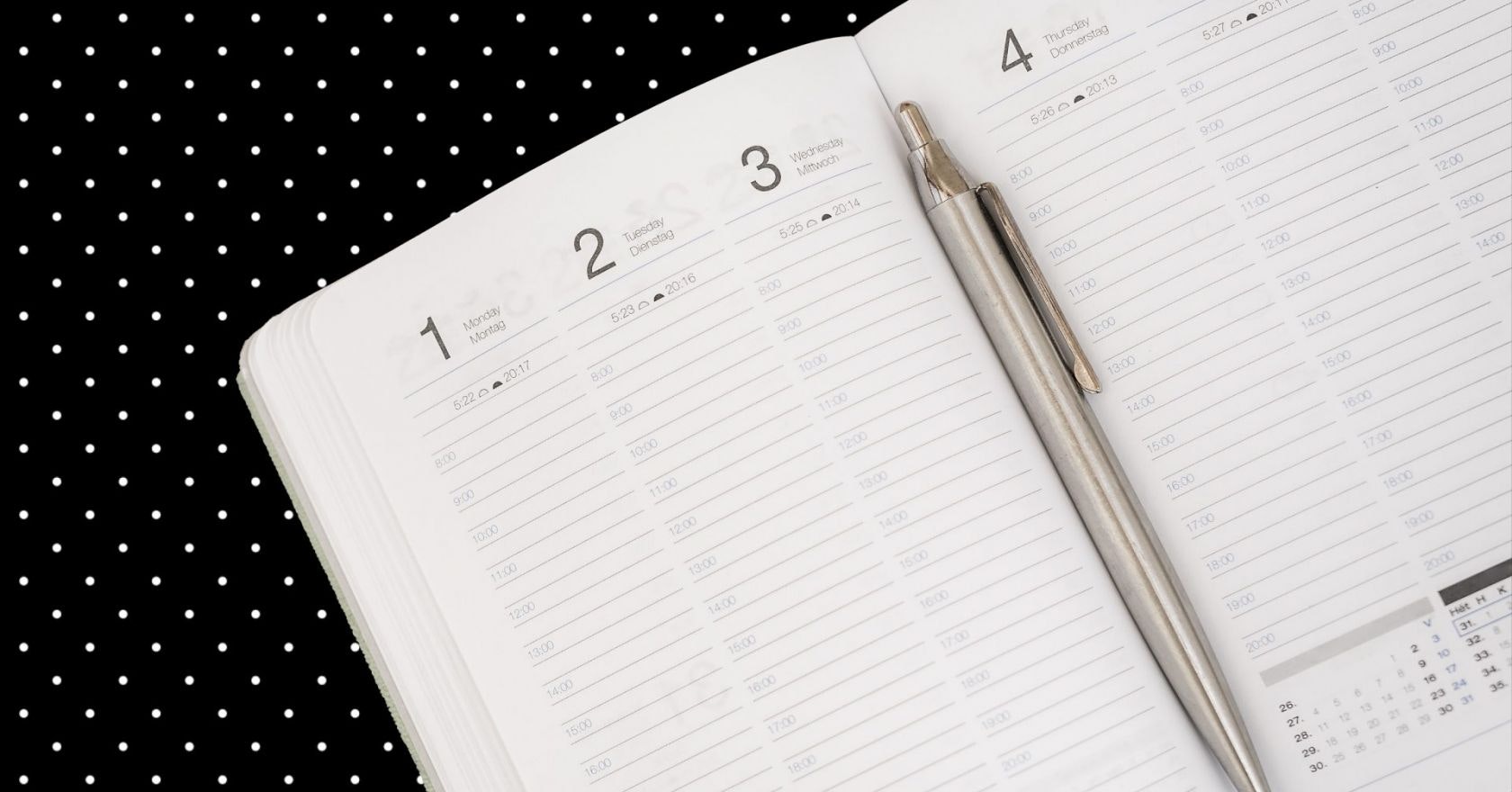Written by Ellen Scott
When was the last time you consciously, deliberately scheduled in nothing at all? Cassie Holmes, the author of Happier Hour, reveals why you really should make it a regular habit.
Are you someone who likes to schedule every waking moment? Or are you more of a free-wheeling, see-what-happens and go-with-the-flow type?
You likely fit into one of these two distinct camps, and we’re not here to say that one approach is better than the other. Instead, it might be time to meet in the middle.
If you’re a scheduler, you’ll likely know the overwhelm of a packed day. Every minute is accounted for, you’re racing from one meeting to the next, and it can feel like life is just ticking off an endless to-do list. If you’re on the other side of the spectrum, you’ve probably felt the aimlessness of a day with zero structure, finding yourself flitting between different tasks or looking at the clock and asking yourself what you’ve even been doing the last four hours.
Cassie Holmes is a professor of marketing and behavioural decision-making at UCLA Anderson School of Management and the author of Happier Hour, which is all about how to make the most of our time. She suggests that the answer to both of these conundrums is to deliberately and consciously schedule in free time.
“Free time is time available to do what you want to do, rather than time filled with what you have to do,” Holmes tells Stylist. “It is time spent on something that isn’t (or doesn’t feel like) a task on your to-do list.
“My research shows that having too little free time makes people feel low levels of happiness and satisfaction in life. With too little time, we feel heightened levels of stress, and over time, this leaves us feeling exhausted, overwhelmed, and we eventually burn out. It also keeps us from cultivating the important relationships in our lives.
“We need to take true breaks. Unfortunately, the time that we do have off from work often doesn’t feel like a break. Our ‘go go go’ doing mode from the workweek tends to carry through our weekends. We continue to be driven to check items off our to-do lists, without leaving time to simply be. Even social events feel like a to-do.”
When we’re obsessed with to-do list ticking, the idea of doing nothing can fill us with dread. The very idea of free time feels alien. So imposing a little bit of structure on it can make it feel easier – and ensure that we actually prioritise it.
What does that actually look like? It’s about scheduling in an hour (or 20 minutes, if that feels like too much at first) free, relaxing time the same way you would any work or social commitment. You stick it in your calendar or diary, mark out that time as ‘busy’, and if anyone asks you to do anything else, you say, “Sorry, I can’t, because I’m doing something. ” Because yes, your free time is something.
What you do with that time is up to you, but if we were to impose some hard rules, they’d go something like this. No catching up on work. No doing life admin. No errands or chores. No things that you feel like you ‘should’ be doing, but that you actually really don’t fancy. Schedule in a window each week that’s entirely yours, to spend how you like.
Holmes has some additional suggestions: “Be intentional about the activities you spend your time on, and pay attention during your important activities — especially those that offer joy. Make these times no-phone zones. Overall, your goal is to maximise the amount of time that feels worthwhile and minimise the amount of time that feels like a waste. Time spent cultivating your relationships and your emotional wellbeing is absolutely worthwhile.”
And if you find yourself feeling guilty for spending time in an ‘unproductive’ way, remind yourself that rest and relaxation is productive – that’s what enables you to get back up and do all the other stuff that’s in your schedule.
“Recognise just how important this time is for your continued motivation and overall satisfaction in your life,” Holmes urges, “so you don’t look back finding yourself disconnected from loved ones and with regret. It helps to make this time feel less like an indulgence and more as an imperative. Research shows that feeling happier makes us show up better across our domains of life, including in work. Being happier allows us to not only feel better, but to be better.”
Happier Hour by Cassie Holmes is available now (Penguin Life, £14.99).
Images: Getty; Stylist
Source: Read Full Article
